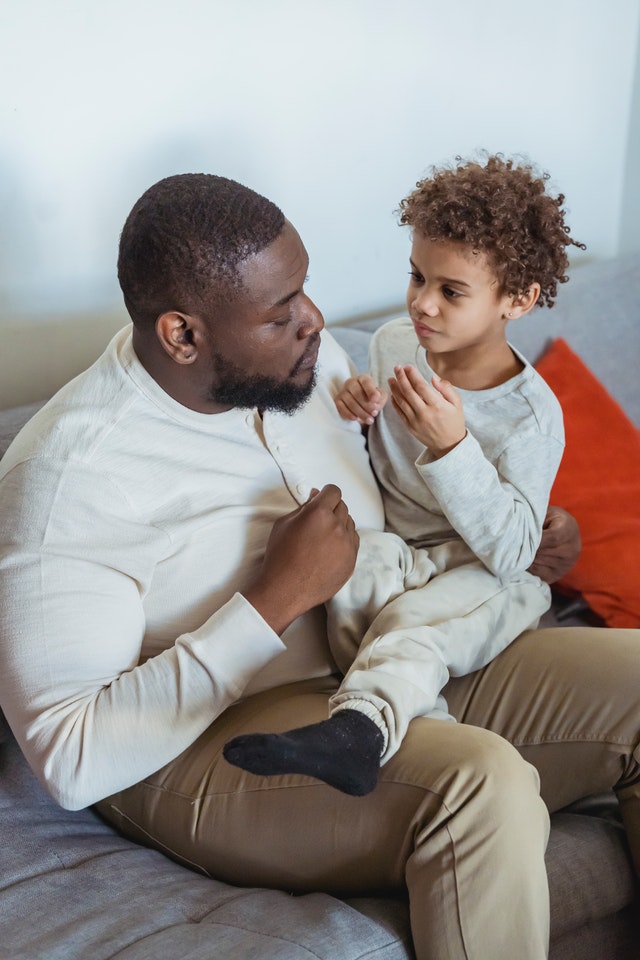Put Connection Before Correction
We can become hyper focused on correction in our relationships, when what we really need is connection.
If you are a parent, it’s pretty likely that you feel a huge responsibility for your child’s behavior. No doubt you believe it reflects back to you.
(Newsflash, your child is their own human with their own right to choose, so good or bad, your credit for their behavior is debatable).
As a young mother, (and let’s be honest, even sometimes still today), I could feel the judging eyes around me. If my child was doing something that was less than socially acceptable my correction radar went on high alert.
This perceived judgement, which sometimes may be there and more often probably wasn’t, pushed my parenting panic buttons.”I have to correct this behavior.”
Panic buttons often lead to, well, panicked behavior, and not the best decision making.
(Read here about how your thinking brain goes out the window when you are panicked.)
It can be really hard to feel like you are doing a good job as a parent.
There are so many people around you that will have an opinion on how you are doing. Other parents lacking confident will give themselves a boost by finding your weaknesses. (It’s true, read about it here.)

Sometimes people may be questioning your choices all around you. Schools may ask how things are at home. Church members may express their disbelief at your choices. Family members may vocalize their disagreements.
It can feel like a battle to defend yourself to others. It’s easy to second guess you decisions.
Researchers Bonnie M. Le and Emily A. Limpett found just how destructive parenting can become when it is focused on worrying about how we appear to others.
So, it not only doesn’t do any good to worry about the judgement of others, focusing on the image you project to others actually harms your parenting behaviors.
Instead, focus on connection.
That’s right. Forget all the advice out there. It comes and go and is wrong as often as it is right.
Don’t worry about the eyes of others.
Worry about the eyes of your child.
Are you connecting with your child’s eyes? Shakespeare said (at least it is most often attributed to him), “The eyes are the window to your soul.” Psychology agrees.
Pay attention. See how often you look at the eyes of other individuals?
When you are engaged in interactions that lead to eye contact, you aren’t distracted with your phone, lost in your thoughts or worried about your image. You will forget what other people might be thinking about you.
Instead, when there is an eye to eye connection, you are focused on and engaged with the person in front of you.
These are the types of interactions children need.
What if next time you got in a disagreement or your child was upset, instead of thinking of your next course of action or your next argument you stopped and truly looked at your child. Would that change your reaction?
Set aside the parenting must do list and instead try to determine:
“Who are you?”
“What are you feeling right now?”
“Where is this behavior coming from?”
Then you can begin to learn about your child. When you learn about your child, you become connected.
When you are connected you have compassion and want to do what you can to help in a positive way.
It is no longer about how to solve the most recent issue when connection is your primary goal.
I’ve trained a couple of mustangs (horses formerly running in the wild). I had to learn a lot in doing so.
Any good trainer will tell you that when horses “misbehave” they are trying to tell you something. This misbehavior elevates when they are not listened to.
This leads to horse accidents. Bucking. Bolting. Biting. Kicking.
When an individual feels an intense pressure that counters what they might need in that moment, just like a horse, they will react.
Reaction will intensify as needs are ignored.
See how this might also be applicable to children?
I was talking to a good friend, and a genius parent. She was telling me how, whenever one of her children really starts to “misbehave” she makes a conscious effort to spend some one on one time together.
Like a miracle, the child suddenly behaves better.
There is something about giving time to our children, no matter their age that is a healing balm and powerful teacher.
Connection doesn’t have to be extravagant.

Costly events aren’t required. It doesn’t involve buying anything. There is only one item that must be used to lead to connection–presence.
Psychology has studied parenting styles extensively. In their research they term the most successful parenting style authoritative. It is described as high love, high expectations.
But what is high love?
One psychologist describes it in the following way.
“Authoritative parents are nurturing, supportive and often in tune with their children’s needs. They guide their children through open and honest discussions to teach values and reasoning. Kids who have authoritative parents tend to be self-disciplined and can think for themselves.” Dr. Francyne Zeltser
There is absolutely nothing in there about punishing your child or “tough” love. When misbehavior occurs, connected parents talk about it openly and honestly. There are not ultimatums, demands and threats. Conversely, there is also not complete freedom.
There is discussion and teaching.
We can only work to understand our children when we have a connection with them.
Connection leads to self discipline.
Isn’t it nicer when we don’t have to feel like we need to monitor each and every action and behavior? When you focus on connection instead of what you need to correct, you don’t have to correct so often because children will learn to do it for themselves.
When children are connected to you, they listen to you. They want to know what you have to say because they value your ideas. You’ve shown them that you care rather than needing to be in control.
A longitudinal research study conducted by professors at Harvard University found that “parental warmth” was so influential it impacted drug use and smoking in middle aged adults. At a time when parents had little to no “control” over their children, their relationships still carried a positive influence.
Recently, after a series of poor choices, my daughter got herself in a situation which she shouldn’t have been in. When she called me, I didn’t even need to correct her. She already knew. Some of the first words out of her mouth were, “I’m probably grounded.”
The words were “I’m probably grounded,” but what she was saying was “Mom, I made a mistake and I realize it.”
(We don’t do groundings, we do mental health breaks. My kids love it, lol.)
I’m not a perfect parent and I’m not perfect at connecting. You won’t be either. The important thing is that you try.
Instead of focusing on the plethora of advice and opinions, telling you what is right or wrong next time a tricky situation arises, turn your focus to your child.
Create a guiding question of, how can I connect to my child in this moment? That question will help lead your parenting practices.
Focus on the solution that leads to connection.



